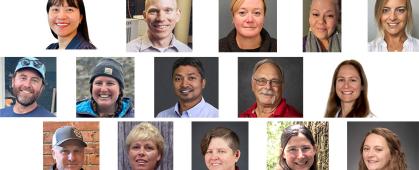
2025 Seed Awards
The SMART FIRES Research Seed Award Program provides funding to support innovative research projects that align with the goals of the SMART FIRES NSF EPSCoR initiative, which focuses on advancing technologies and understanding around prescribed fire and its impacts on Montana communities. Open to faculty at Montana State University and the University of Montana, the program offers awards of up to $25,000 to fund activities such as equipment purchases, personnel costs, field data collection, and collaborative research.
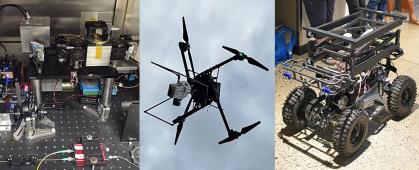
Smart Optical Sensors for Fire and Smoke Science
The SMART FIRES project is leveraging cutting-edge technology to better understand fire behavior, smoke dispersion, and fuel conditions. Four key instruments—High Spectral Resolution Lidar (HSRL), All-Sky Polarization Imager (ASPI), Smart Unoccupied System Hyperspectral Imager (SUSHI), and the Thermal UAS Imager—are at the core of this effort. Each provides unique insights, and together they form a powerful toolkit for prescribed burn research and management.
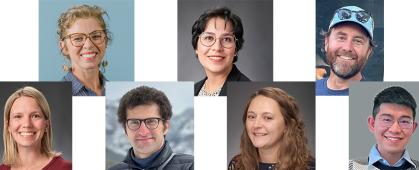
Early Professional Career Development Awards
The 2025 SMART FIRES Early Professional Career Development awards provide support for early-career faculty and postdoctoral scholars at Montana State University in disciplines related to SMART FIRES, such as computer science, engineering, environmental science, economics, chemistry, and social science.
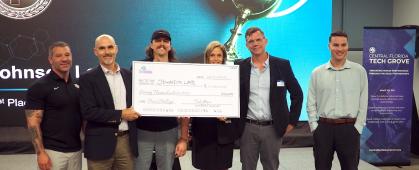
Advancing Prescribed Fire Training Through Immersive Simulation
Top-left: screenshot from the product demo; top-right: Johnson's Lab displays their $70K award; lower-left and -right: student lab members demo the team's product for the panel of judges. Johnson’s Lab, a team of graduate students led by Jesse Johnson, Professor of
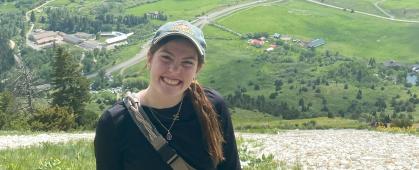
Women in STEM feature: Morgan Hasenmyer
Where are you from?Mansfield, TXWhat do you like to do for fun?Play volleyball, hike, read and sewCan you describe your research?
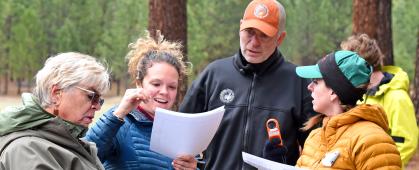
Fire Science Field Day: Educators Explore Wildfire Mitigation in Montana
As part of the Montana Federation of Public Employees 2025 Educator Conference, SMART FIRES hosted a Fire Science Field Day in Missoula on October 17. The full-day event welcomed 11 educators from across the state to explore how locally relevant fire science can be integrated into K–12 classrooms.
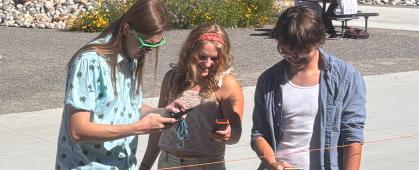
Future teachers explore citizen science at MSU
Pre-service teachers (future science teachers) from EDM 403 and EDM 415 (Science Methods) at MSU helped pilot-test Temtop air quality instruments as part of their classes’ unit on citizen science. The instruments will become part of the SMART FIRES Instrument Lending Library being developed for Montana teachers.
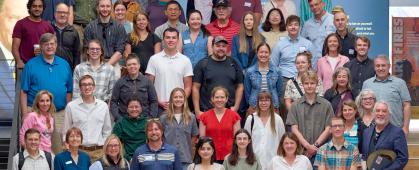
SMART FIRES Year 3 Annual Meeting: Building a Smarter Future for Montana’s Fire Landscape
The Montana NSF EPSCoR SMART FIRES project convened its Year 3 ‘All Hands Meeting’ (AHM2025) on September 8–9, 2025 at Montana State University (MSU) in Bozeman, bringing together researchers, students, partners, and advisors from across the state and beyond to share progress, spark new collaborations, and deepen interdisciplinary connections.

Women in STEM feature: Dr. Anh Nguyen
Where are you from?I’m originally from Ho Chi Minh City, Vietnam.What do you like to do for fun?I love cooking Vietnamese foods and playing badminton when I’m indoors. Outdoors, I enjoy exploring new hiking trails, checking out new places, lakes, and camping spots, and visiting national parks.
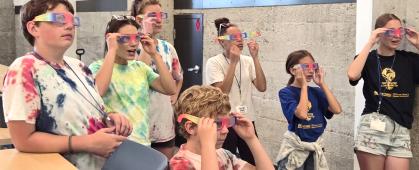
Montana EPSCoR Supports Inclusive Learning at MSU Summer Camp
Montana NSF EPSCoR proudly continued its sponsorship of Montana State University’s Inclusive Community Camp (ICC), now in its sixth summer.